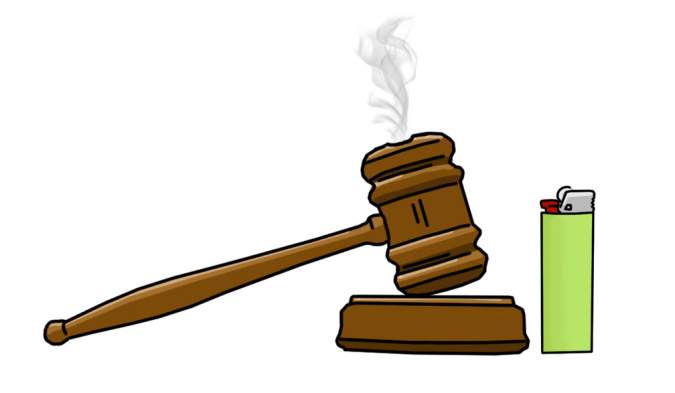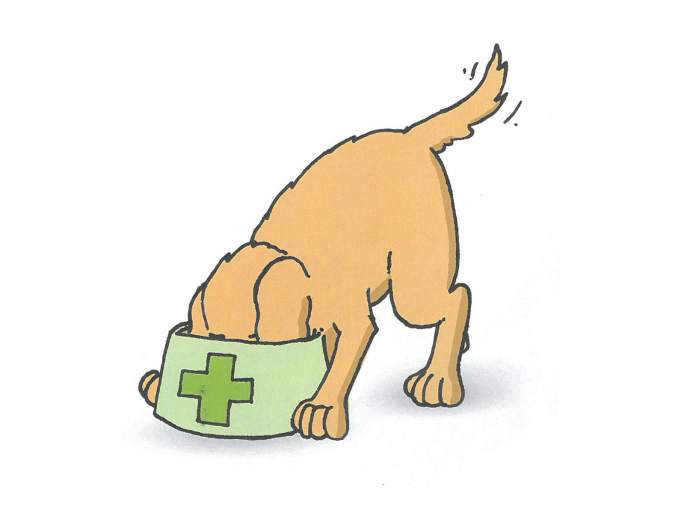Our King County Sheriff is outspoken in his support for legalization.
The sky has not fallen because we have legalized marijuana in Washington. Is it going to work long-term? I don’t know; we’ll have to wait and see. But clearly, what we were doing before—the War on Drugs—did not work, so it was time to try something new. The citizens suggested legalizing marijuana—and I support it.”
It’s a reasonable-enough statement, but somewhat surprising in that it comes from our own King County Sheriff, John Urquhart. “I still think it was a good decision for the citizens of Washington,” Urquhart told me in an interview last week. “The initiative [I-502] passed statewide with 56 percent supporting it, and 63 percent in King County, so that’s clearly what the citizens wanted.”
Urquhart’s outspoken support of legalization isn’t being taken all that well by some members of law enforcement. Urquhart did a TV ad last year on behalf of the (successful) Oregon Measure 91, and members of the Oregon State Sheriff’s Association took him to task. “How dare he use his position as a sheriff to spoon-feed Oregonians blatantly false information about Washington state,” said Clatsop County Sheriff Tom Bergin, “right before an Oregon election.”
Jefferson County Sheriff Jim Adkins not only didn’t like Urquhart’s ad, he went NIMBY gun-slinger with a zinger. “You don’t see any Oregon sheriffs going up to Washington to weigh in,” Adkins blasted in a statement. “He needs to get his nose out of our state and show some respect. The issues we face are different.” Like neck beards and living on a swamp-river, I presume.
Members of the Oregon Sheriffs Association claimed Urquhart’s statements were misleading, citing state patrol reports that showed stoned driving arrests had increased. In the ad, Urquhart rightly claims tax revenue is up, wasteful arrests have been eliminated, and DUIs in our state are down, implying that legal weed may have something to do with all these results.
While it’s true DUIs are down overall (DUIs have dropped 25 percent since 2009), arrests involving pot and driving are up. The most current stats from the Washington State Patrol show that cannabis-related DUIs since December 2012 (when we legalized it, man) have gone up, from 988 in 2011 to 1,362 in 2013. A Washington Traffic Safety commission report last week showed the frequency of drivers in fatal crashes who tested positive with THC in their systems (alone, or in combo with booze or other drugs) was highest in 2014 (75) as compared to the previous four-year average (36).
“There have been more arrests for driving with marijuana in their system,” Urquhart admitted, “but, overall, fatality crashes have not gone up. There haven’t been any studies in Washington where there’s a direct causation from legalizing marijuana [to road fatalities]. There might be a correlation, but we’ll need more research on that.”
And the reason for more stoned drivers? “Well, for one, we’re looking for stoned drivers. Because of all the publicity around it. And now we have a per se standard. So we’re watching for that—and obviously there will be more arrests. As they test more blood—they’re gonna find more people with THC. The question then will be, how long has it been in their system? Did it affect their ability to drive? And what other drugs might be in their system?—including alcohol.”
But surely, since ganja has gone legal, officers in the field have constantly had to tackle out-of-control stoners at sex-crazed parties, right?
“No. Not at all. From what I’m hearing from my deputies, it’s a big yawner. No change for them whatsoever. What I have told them, if people are smoking marijuana in public, use your discretion like you would with drinking in public, or like speeding. Don’t be afraid to write a citation. So they’re doing that. But I haven’t heard any pushback.”
I asked the Sheriff if it was strange to be a voice for legalization. “To be honest, it’s very, very weird. I have been a cop for 40 years, I spent a good amount of that time doing drug investigations, and was a street-level narcotics investigator. And now, in some quarters, I’m the face of all this. Most police chiefs and sheriffs don’t want to speak out on this, regardless of their what their personal feelings are. And of course, the police chief has to kowtow to who the mayor is. A sheriff has more freedom. I just don’t care, to tell you the truth.” (FYI, the Washington State Sheriffs’ Association wrote a letter to the Oregon sheriffs during the campaign, clearly stating that Urquhart’s views were not endorsed by the organization.)
Urquhart isn’t a Lone Ranger (Lone Reefer?) on legalization. Founded in 2002, LEAP (Law Enforcement Against Prohibition) is a group of over 5,000 current and retired cops, judges, and prosecutors committed to ending decades of failed drug policies. Like Urquhart, they don’t like the trillion dollars spent on the failed War on Drugs or the $80 billion spent on incarceration in the U.S. each year—which could instead go to rehabilitation, job training, and education.
At a press conference last month, executive director Major Neill Franklin explained LEAP’s position: “As our nation’s top police and prosecutors reflect back on their careers, we have come to understand that many of the so-called tough-on-crime principles to which many of us gave our lives are flat-out wrong,” said Franklin. “We can reduce crime and incarceration at the same time, but to do that we need alternatives to arrest, balance in our laws, and continued improvement in community relations.”
Every 45 seconds a person gets busted for marijuana. This adds up to more than 700,000 pot-related arrests in 2014 alone. Of 1,561,231 total drug arrests last year, weed made up 45 percent of ’em. Of the 1,700 daily cannabis busts, 88.4 percent were solely for possession. Still, Urquhart understands that not all law enforcement will agree with his stand on legalization, and he’s fine with that—so long as they have ideas of their own on failed policy.
“The only thing that gets me pissed off is when police chiefs criticize the decision that the citizens of Washington made, for legalizing marijuana, but offer no alternative to that. They all know the War on Drugs doesn’t work. What are we going to do differently? Marijuana is one small step. Let’s see if it works. It’s a grand social experiment. And it appears to be taking hold.”





